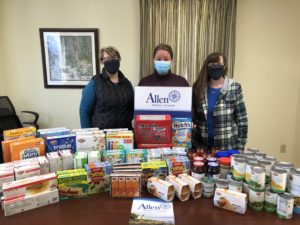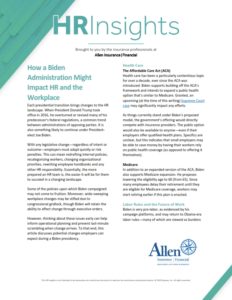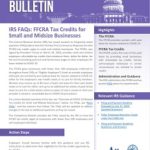As 2019 draws to a close, it’s time to begin organizing your finances for the new year. To help you get started, we’ve put together a list of key planning topics to consider.
Savings and Investments
Revisit your retirement contributions. Review how much you’re contributing to your workplace retirement account. If you’re not taking full advantage of your employer’s match, it’s a great time to consider increasing your contribution. If you’ve already maxed out your match or your employer doesn’t offer one, boosting your contribution could still offer tax advantages. Now is also a good time to ensure that your portfolio allocation remains in line with your objectives.
Take stock of your goals. Did you set savings goals for 2019? Realistically evaluate how you did, and think about your goals for next year. If you determine that you are off track, we’d be happy to help you develop and monitor a financial plan.
Health and Wellness
Spend your flexible spending account (FSA) dollars. If you have an FSA, those funds may be forfeited if you don’t use them by year-end. (Some FSAs offer a 2.5-month grace period or the ability to carry over up to $500 into the next year; check with your employer to see if those options are available.) It’s also a good time to calculate your FSA allotment for next year, based on your current account excess or deficit.
If you’re not using an FSA, evaluate your qualifying health care costs to see if establishing one for 2020 would make sense.
Taxes, Taxes, Taxes
Manage your marginal tax rate. If you’re on the threshold of a tax bracket, deferring income or accelerating deductions may help you reduce your tax exposure. It might make sense to defer some of your income to 2020 if doing so will put you in a lower tax bracket. Accelerating deductions, such as medical expenses or charitable contributions, into the current tax year (rather than paying for deductible items in 2020) may have the same effect. In addition, reviewing your capital gains and losses may reveal tax planning opportunities—for instance, harvesting losses to offset capital gains.
Here are a few key 2020 tax thresholds to keep in mind:
• The 37 percent marginal tax rate affects those with taxable incomes in excess of $518,400 (individual), $622,050 (married filing jointly), $518,400 (head of household), and $311,025 (married filing separately).
• The 20 percent capital gains tax rate applies to those with a taxable income in excess of $441,450 (individual), $496,600 (married filing jointly), $469,050 (head of household), and $248,300 (married filing separately).
• The 3.8 percent surtax on investment income applies to the lesser of net investment income or the excess of modified adjusted gross income over $200,000 (individual), $250,000 (married filing jointly), $200,000 (head of household), and $125,000 (married filing separately).
Consider the benefits of charitable giving. Donating to charity is another good strategy for reducing taxable income. If you’d like to help a worthy cause while trimming your taxes, it’s worth exploring your charitable goals and various gifting alternatives.
Make a strategy for stock options. If you hold stock options, now is a good time to make a strategy for managing current and future income. Consider the timing of a nonqualified stock option exercise. In light of your estimated tax picture, would it make sense to avoid accelerating income into the current tax year or to defer income to future years? And don’t forget about the alternative minimum tax (AMT). If you’re considering exercising incentive stock options before year-end, have your tax advisor prepare an AMT projection to see if there’s any tax benefit to waiting until January of the following year.
Plan for estimated taxes and required minimum distributions (RMDs). When considering your taxes for 2019, be sure to take any potentially large bonuses or a prosperous business year into account. You may have to file estimated taxes or increase the upcoming January payment. If you’re turning 70½, you’ll need a strategy for taking RMDs from your traditional IRA and 401(k) plans.
Adjust your withholding. If you think you may be subject to an estimated tax penalty, consider asking your employer (via Form W-4) to increase your withholding for the remainder of the year to cover the shortfall. The biggest advantage of this is that withholding is considered as having been paid evenly throughout the year instead of when the dollars are actually taken from your paycheck. You can also use this strategy to make up for low or missing quarterly estimated tax payments.
Proactive Planning
Review your estate documents. To help ensure that your estate plan stays in tune with your goals and needs, you should review and update it on an ongoing basis to account for any life changes or other circumstances. If you haven’t done so during 2019, take time to:
• Check trust funding
• Update beneficiary designations
• Take a fresh look at trustee and agent appointments
• Review provisions of powers of attorney and health care directives
• Ensure that you fully understand all of your documents
Check your credit report. It’s important to monitor your credit report regularly for suspicious activity that could indicate identity theft. Federal law requires that each of the nationwide credit reporting companies (Equifax, Experian, and TransUnion) provide you with a free copy of your report every 12 months, at your request.
Get professional advice. Of course, this list is far from exhaustive, and you may have unique planning concerns not covered here. As you prepare for the coming year, please feel free to reach out to us to discuss the financial issues and deadlines that are most relevant to you.
Whatever your planning may entail, we wish you a happy, healthy, and prosperous 2020!







